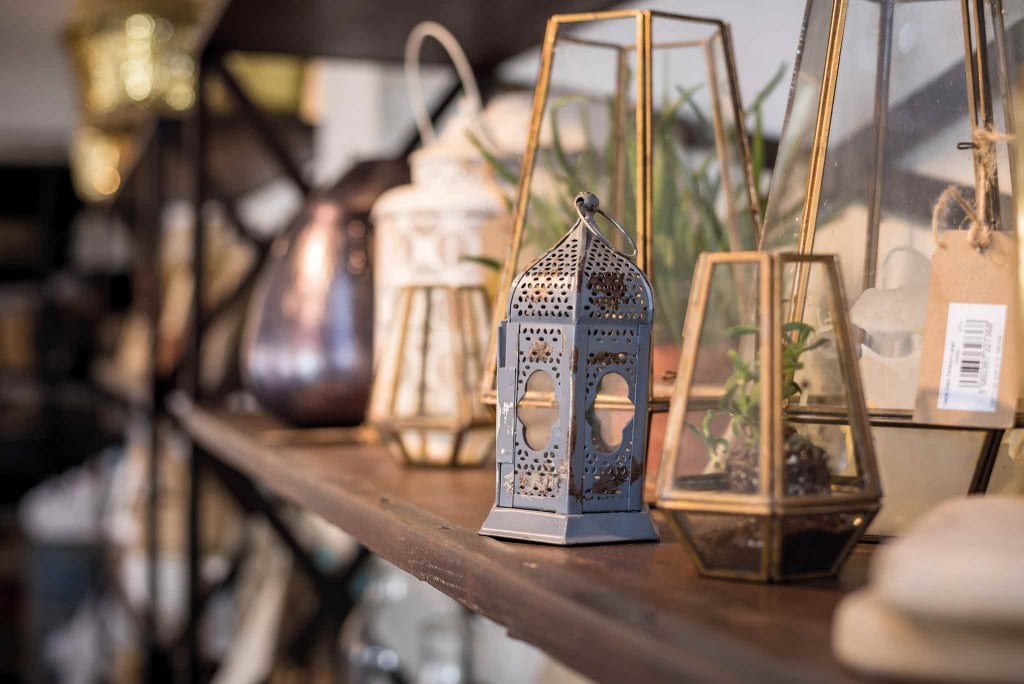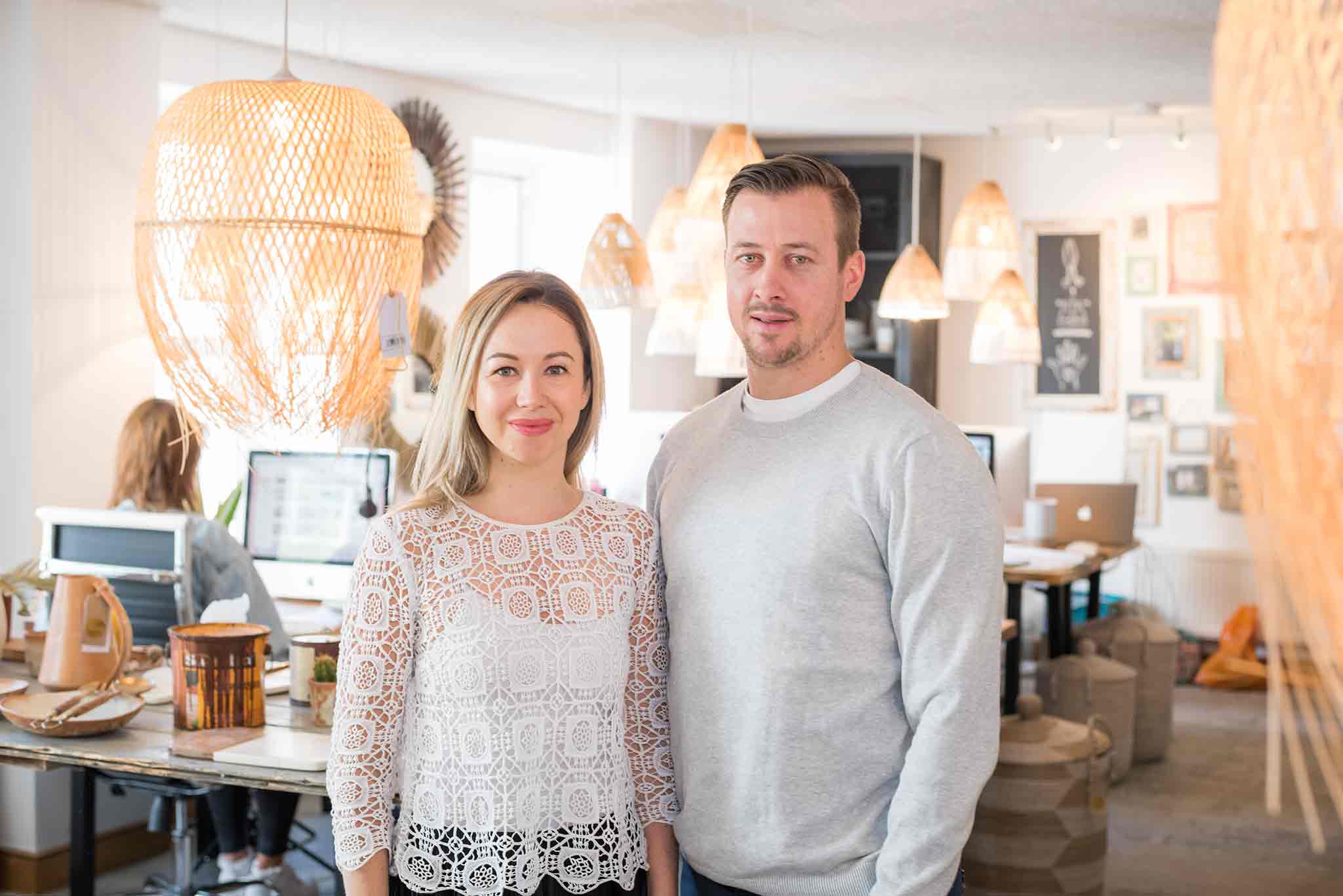Crowdfunding may sound like an exotic or risky way to raise money, but it’s becoming an increasingly integral part of the strategy for small businesses and start-ups needing capital.
One local company taking the crowdfunding route is Dassie Artisan, a Pantiles-based wholesaler of handcrafted home ware, which has turned to crowdfunding to raise £225,000 to expand the business.
Founded in 2012 by husband and wife David and Roxi Zeeman, the couple – originally from Cape Town in South Africa – moved the business to The Pantiles in January in order to grow.
“We set it up within months of moving to the UK, but initially I was just running it as a pop-up in Wandsworth,” explained Roxi.
It was not long before they were given their first real break after entering a competition run by Startup Britain, a campaigned aimed at boosting entrepreneurship in the UK.
She said: “At the beginning there was no intention of the company going wholesale and I was going to run it as a small retail business on the weekends.
“But then I was alerted to a competition run by Startup Britain on Twitter and the winning companies were going to get the chance to pitch to John Lewis.
“It was only three months after we had set up and I was trying to get the social media side of the business going so I thought I would give it a go.”
Going through the process of applying forced the couple to focus their minds on what sort of company they wanted Dassie Artisan to be.
Their unique business model, which sees them source only handmade, cottage industry goods from around the world, was enough to secure them an opportunity to pitch to the head buyer of the famous department store.
“Three weeks after entering we got an email stating that out of the 500 businesses which had applied, we were just one of ten to win a place – and the rest is history.”
On the back of their successful pitch, the company won a year-long contract to supply John Lewis, with the store also offering coaching to the couple, who had no previous experience of the wholesale sector.
Despite the success, the pair were still running the business from the kitchen table, even after moving to Tunbridge Wells two years ago.
The company has grown and now employs four other people while expanding its supply network to some of the remotest areas on the planet.
Roxi said: “We design the products in-house and then source them out to the best artisan groups. We work with people in South Africa, Malawi, Kenya, India, Thailand and Vietnam.
“Each region has its own speciality, for example Thailand is excellent for glass, whereas India has the only region we know that works with marble.
“Every single item is made by hand using eco-friendly materials. There is nothing plastic or mass-produced.
“Most of the products are made in a cottage industry style, where different parts of each piece will be made in a number of homes before being amalgamated and packaged for us.”
As Creative Director, Roxi spends a large part of her time keeping an eye on the latest trends and fashions to ensure they stay ahead of the curve.
“We effectively take what the producers have been making for years and bring it forward to match contemporary trends, so I am constantly online looking at what is going on.
“We also have to take a lot of risks, for example this autumn/winter our range will be quite dark looking, which is very different to what we have done, but we have to be leaders as well as followers of trends,” she said.
There is added pressure on Dassie Artisan because of the nature of the products they source, and where they get them from, in that any error or misjudgment of the market is very hard to rectify and can be costly.
Part of the funding will go towards improving the logistics of the company and its chains, making them more resilient to problems, explained David.
He said: “Logistically, the planning behind it needs long lead times, and because everything is handmade the process of sampling it all takes a long time.
“So we need to be at least six months to a year ahead in preparation for your orders, but at the moment it is probably three or four months for us. We are working on extending that.”
The rapid growth of the company has in itself bought challenges as they are unable to meet demand for their products. “The demand far outstrips our current capacity, which is limited by what our cash flow allows.
“We have never had enough stock and currently have close to £200,000 of signed back orders from customers to fill, which is why we are busy raising funds at the moment,” Roxi adds.
So far, the company has just under half of the £225,000 it is seeking pledged to it by investors using the crowdfunding platform Crowdcube.
But time is running out for them to make up the remaining shortfall by May 20 as Crowdcube rules state that if the total is
not reached, all money must be returned to those who have invested so far.
On offer as a ‘reward’ are shares equivalent to 15.79 per cent of the total.
Whatever happens in the near future, the couple are confident that their company will continue to be successful.
David said: “If the raise goes ahead we hope to implement a five-year plan that will see us hit sales of £10million by the end of that period.
“But if we do not hit the target we will carry on. There is pressure but it is not make or break for us.”

WHAT IS CROWDFUNDING?
Crowdfunding is a way of raising money by asking a large number of people for a small amount each. Previously, finding finance involved asking a few people for large sums.
Book subscriptions, benefits and the co-operative movement in the 19th and 20th centuries are historic examples of the alternative financing system.
But in its more innovative modern form, fundraisers typically use websites and social media to generate support, alongside traditional networks of friends, family and work connections.
There are three different types of crowdfunding:
Donation or reward: Investors take part because they believe in the project, and expect nothing in return. However, there can be tangible ‘rewards’ built into the transaction.
Debt: Donors receive their money back with interest. Also known as peer-to-peer (P2P) lending, it bypasses customary banking.
Equity: The investment is provided in exchange for equity, such as shares or a stake in the venture.
The first online crowdfunded project is thought to have taken place in 1997 when fans of rock band Marillion raised $60,000 to fund their tour of the United States.
In February 2012, crowdfunding for a single venture in the UK raised over £1million for the first time.
Kent winemakers Chapel Down, based in Tenterden, became the first listed company in the UK to venture into crowdfunding when it raised £4m in 2014.
At the time it was the largest sum ever raised by the ground-breaking finance resource in Britain.
The sum was raised from more than 1,400 investors in order to buy the lease on more land to plant vines and build a new winery with storage and distribution.
This year the company has raised £1.16m by smaller-scale crowdfunding to help build its own brewery for its Curious Drinks beer and cider business.
Small investors gave upwards of £100 in return for shares in the business and other benefits. It also raised £275,000 from those prepared to put in a minimum £25,000,
That brought them up to a total of £1.71m, from a total of 895 contributors. The initial target had been set at £1m when the project was launched last October.
The company already manufactures the cider at the Chapel Down winery but its lager, IPA and porter beers had been brewed in Leicester by Everards.
It will now begin construction on a brewery in nearby Ashford next month in order to bring all of its brewing operation in-house and expand production.








